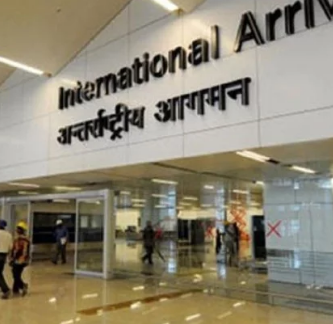DAINIK NATION BUREAU : In a recent development within the Nationalist Congress Party (NCP), a group of party members including Ajit Pawar, Praful Patel, and others met with party leader Sharad Pawar. The meeting took place amid speculations of internal dissent and rebellion within the NCP ranks. The rebels expressed their concerns and grievances to Sharad Pawar, who attentively listened but refrained from providing an immediate reaction. This article delves into the significance of the NCP rebel camp’s meeting with Sharad Pawar, shedding light on the underlying issues and the potential implications for the party’s future.
An Expression of Discontent : The gathering of NCP rebels with Sharad Pawar is indicative of an atmosphere of discontent within the party. It serves as a platform for disgruntled members to voice their concerns and frustrations. While the specific grievances of the rebel camp have not been disclosed publicly, their decision to approach the party leader suggests a desire for change or resolution within the party’s internal dynamics.
Sharad Pawar’s Patient Listening : During the meeting, Sharad Pawar demonstrated his willingness to engage with the dissatisfied members by attentively listening to their grievances. This patient approach is a testament to Pawar’s leadership style and his commitment to maintaining party unity. By allowing the rebels to express their concerns openly, Pawar has set a tone of inclusivity and open communication within the party.
The Absence of Immediate Reaction : Despite the rebels’ expectations, Sharad Pawar refrained from providing an immediate reaction or definitive response to their concerns. This cautious approach may indicate the complexity of the issues raised or the need for further internal deliberations before any decisions are made. It is important to note that political dynamics often involve multiple perspectives and require careful consideration before any definitive action can be taken.
Implications for the NCP : The meeting between the rebel camp and Sharad Pawar holds significant implications for the NCP’s future trajectory. On one hand, it highlights the presence of internal dissent, signaling potential challenges in maintaining party unity. On the other hand, the fact that the rebels chose to engage with the party leader instead of resorting to public discord suggests a commitment to resolving differences within the party structure.
Intra-party Dialogue and Reconciliation : The meeting presents an opportunity for intra-party dialogue and reconciliation within the NCP. By providing a platform for dissatisfied members to express their concerns directly to the party leader, the NCP demonstrates a commitment to internal democracy and open discourse. Such engagement can pave the way for understanding, compromise, and potentially address the issues raised by the rebel camp.
Moving Forward : The NCP now stands at a critical juncture. The party leadership, including Sharad Pawar, must carefully consider the grievances voiced by the rebels and work towards finding suitable solutions. Internal dialogue, conflict resolution, and fostering unity should be prioritized to ensure the party’s strength and stability in the face of challenges.
The meeting between the NCP rebel camp and Sharad Pawar signifies the presence of dissent within the party. The rebels’ decision to approach the party leader reflects a desire for change and resolution within the NCP. Sharad Pawar’s patient listening and refraining from immediate reactions indicate a thoughtful and measured approach to addressing internal concerns. The NCP now has an opportunity to engage in intra-party dialogue, fostering unity and working towards resolving the issues raised by the rebels. The party’s ability to navigate these challenges will play a vital role in shaping its future course.
 Dainik Nation News Portal
Dainik Nation News Portal


